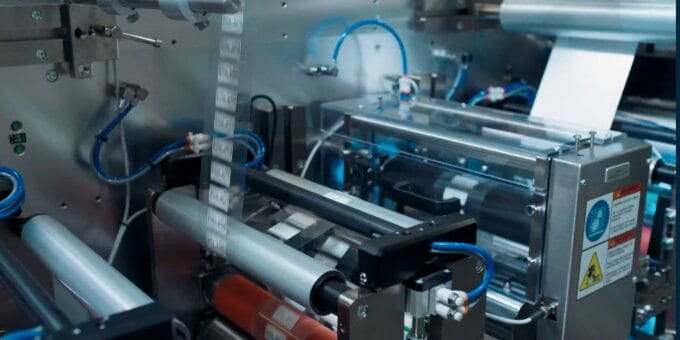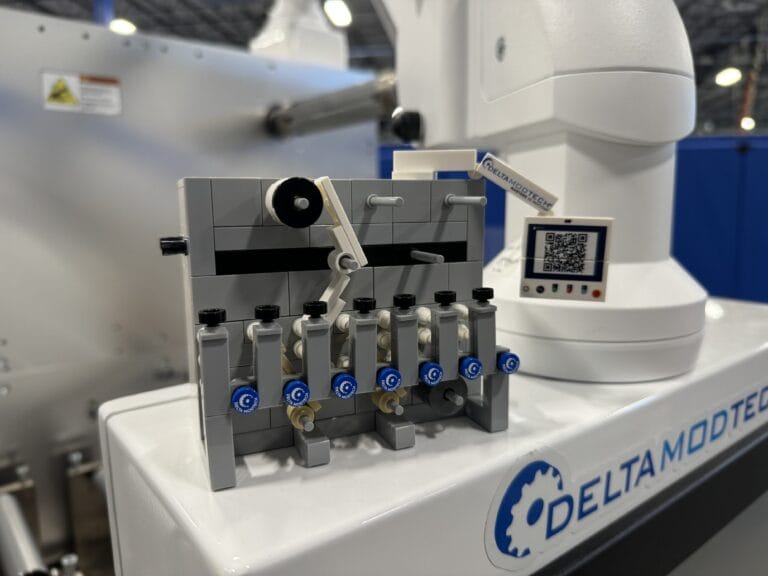
RFID Is Scaling Fast: Is Your Converting Line Ready for Inline Verification?
From pharmaceutical serialization to smart labels in retail, RFID is being adopted for its security, high-speed performance, and ability to identify without line-of-sight scanning. But simply adding RFID tags isn’t enough.
To succeed with RFID, converting lines must encode each tag correctly, verify it inline and in real time, and scale without compromising throughput. That’s what reliable inline verification delivers—but, unfortunately, it’s also where many operations fall short.
Let’s examine the increasingly vital role of inline verification, unpack the production challenges it helps solve, and explore how CISC Semiconductor enables manufacturers to implement it with confidence.
CISC’s role in making RFID work at production speeds
With locations in Austria and Mountain View, Calif, CISC has spent more than 25 years helping manufacturers around the world solve RFID performance challenges. Their specialty is ensuring tags perform reliably in live production—not just in the lab.

“We don’t make the tags or the readers. We make sure everything works together. That’s our job,” says Patrick Vallant, a business development specialist at CISC.
In practice, that job centers on inline verification: testing each tag as it’s encoded, catching failures instantly, and maintaining full line speed. It’s what makes RFID scalable, accurate, and trusted in real-world manufacturing.
Designed for seamless integration, CISC’s tools pair naturally with modular converting platforms like those developed by Delta ModTech, delivering speed and accuracy without disrupting throughput.
How to overcome RFID roadblocks at production speed
Delta ModTech and CISC are preparing for a high-speed RFID demo at the upcoming Labelexpo Europe in Barcelona. As part of that effort, the engineering teams have been collaborating to run RFID encoding and verification at 400 feet per minute. It’s a fast but realistic production speed for many converters.
During pre-show testing, the first tags couldn’t meet that rate, prompting a closer look at variables like tag design, chip behavior, and pitch. To improve performance, Delta worked closely with CISC to identify limiting factors and test alternatives.
“Delta asked us which factors were affecting the read/write behavior—and whether we should try a different tag,” says Vallant. “We tested another tag, found a solution, and achieved the target speed.”
That kind of real-time problem-solving—identify, adapt, optimize—is what RFID integration requires. And it only works with systems built for inline verification under real production conditions—not just theoretical specs.
When configured properly, RFID systems like CISC’s can encode, verify, and reject tags in a continuous process. All without compromising speed or throughput.
RFID mistakes are invisible, unless you catch them inline
RFID failures can go undetected. A tag may look intact but contain no data—or worse, the wrong data. That’s why real-time verification isn’t optional.
CISC’s inline verification system reads and tests each tag on the fly, automatically rejecting or marking any that fail. Vallant gives an actual example of just how valuable that capability is.
“During one of our customer’s converting jobs, the inlays were getting damaged during the cutting process,” says Vallant. “It wasn’t visible to the eye, but our inline verification system caught it in real time. Without that, they could’ve produced millions of bad tags.”
Missed errors don’t just create scrap. They open the door to product recalls, compliance failures, and lasting damage to customer trust.
Don’t treat RFID like a plug-and-play add-on
Too often, manufacturers approach RFID like a simple install. They will apply a tag, drop in a reader, and press start. But in real-world production, the variables run deeper.
“Some don’t realize that RFID wireless communication is its own specialized domain,” says Vallant. “For example, they might remove the antenna housing, not knowing it can seriously affect testing and quality assurance.”
That’s why preparation and collaboration matter. Rather than requesting a quote and hoping it fits, Vallant says that manufacturers should start with a clear assessment of their process, materials, and performance goals.
3 smart questions to ask before committing to an RFID vendor
When evaluating RFID systems, Vallant recommends focusing on three essential areas:
1. What exactly does this system need to do?
Clarify chip type, encoding method, speed requirements, and whether features like encryption or multi-lane support are needed. A defined scope leads to a more precise solution.
2. How will it integrate with our production line?
Determine if the system operates standalone or via API, how many lanes it supports, and how it fits your software and layout.
3. What if our needs change later?
Look for flexibility and ongoing support, whether in antenna configurations, interface options, or software controls. Customization is key as speeds increase or materials shift.
These questions don’t just protect your investment. They lay the foundation for reliable, scalable performance on the line.
Where RFID is headed, and why it matters now
RFID is scaling fast, with global demand projected to triple over the next decade. But success at speed depends on more than just tags. It requires real-time performance, which is why inline verification is becoming essential.
And regulations are accelerating the shift. In the EU, for example, the Digital Product Passport initiative will require numerous products to carry serialized, secure, non-copyable identifiers by 2027. That data must be embedded directly into packaging or labeling.
“Companies that don’t start preparing now could lose access to huge markets.”
Patrick Vallant, Business Development, CISC
“Companies that don’t start preparing now could lose access to huge markets,” says Vallant. “This isn’t just about tracking inventory. It’s also about scaling your business.”
Leading manufacturers aren’t waiting until requirements become deadlines. They’re building internal RFID knowledge, forming the right partnerships, and putting inline verification in place now so they’re ready when it matters most.
Ready to integrate RFID with confidence?
Delta ModTech offers the modular platforms and expertise to help you implement high-speed RFID solutions. They’re backed by proven inline verification and production-ready performance.

